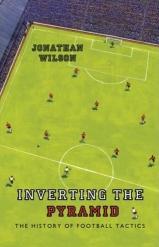So… I am an atheist (waits 30 seconds for those who are turned off by this revelation to close their browsers) but I’m not the classic variety you hear about all the time* who used to be an evangelist but who left their religion for one reason or another and who are now as a result evangelizing for the other side. My dad was an atheist, as was his father before him. You could say that it runs in the family. Now, don’t get me wrong, my parents did take me to church when I was a kid because this is after all America and that’s what you do, but it never stuck and after some wrangling in my early adulthood I just kind of went back to the default position that gods probably don’t exist.
I bring this up because there’s a subset of atheists that, it seems, are so doubtful of the divinity of Jesus** that they find it fashionable to doubt his existence as well. And, in fairness, it’s not an open and shut thing that a lot of Christians would like you to believe, because, well, if you’re an atheist you don’t have that particular requirement for him to exist for your religion to be true. In the end we’re basing our suppositions on the guy based on 1800-2000 year old books, all of which were written at least 20 years and in many cases several decades after the guy’s (supposed) death.
At the same time, though, there’s really not a lot of reason for him *not* to exist. One particular howler I hear a lot (and which is addressed neatly in this book) is this idea that a son of God who resurrects himself in order to wash away the sins of humanity is a recurring religious meme and the Jesus character is just the latest version of it, adapted from Egypt or one of the mystery cults. Well, to those specific points, Osiris is the god that would have been supposedly adapted, and there’s a fair bit of difference between a god of the underworld who is no longer dead but now has to walk among dead people and the Christian imagination of Jesus. And as to the mystery cults such as Mithra, there is a reason they’re called mystery cults and that’s because we don’t actually know much of anything about them. We know that they existed and in some cases we’re aware of locations of temples and such but very, very little was written down that we can compare. Hence the word “mystery”. If the Christians copied this myth from existing groups, they would have copied bits and pieces from several and amalgamated them into one. But there’s a less complicated explanation.
What’s more logical, as Ehrman points out, is that there was a guy named Jesus and he really was crucified by the Romans for being a political agitator. He certainly would not have been the only figure like this hanging around Jerusalem during this period of time. Anyway, this created a huge issue for the new religious sect. There is a specific passage in the OT that if you are hanged from a tree you can’t be the Messiah***. Basically, the Christian community, confronted with this fact, spun it into “um, yeah! He died like this so EVERYONE’S sins can be expunged! It’s not an embarrassing thing! It’s an advantage!”
This also, of course, wouldn’t be the only time that someone used propaganda to turn a fault into a bonus. That being said, if Christianity would have been created from whole cloth, don’t you think that the author would have come up with something more palatable to Jews than crucifixion (which I know isn’t technically hanging but which was definitely thought of as analagous by the people at the time since both involved hanging someone from a bunch of wood)?
The bigger question, I guess, is why is this stuff important? I mean, I don’t particularly care if there was a Jesus or not. The issue I have with Jesus denialists**** is that they by and large exhibit a general lack of understanding of how we have “facts” from ancient history. One thing that’s commonly cited from the “anti “crowd, for example, is the fact that we only have like 3 sources that talk about Jesus in the century after his death. What is left out of this is that there are really only about 2 sources that we have access to that deal with events that took place in Palestine in the 1st century CE (the third source for Jesus is in one of the Pliny’s works (the younger I think) who at one point whinges about those weirdo Christians). We often have very little evidence for anything this far back, and what we do have is very often tainted. That doesn’t mean that we ought to take the default position that nothing existed back then; that would be absurd.
Anyway, Ehrman’s book is highly enjoyable, at least in the opinion of this history nerd, and written with the non-scholar in mind (he has published scholarly works on this subject as well). Non-Christians will appreciate the book because it’s written from the standpoint of a non-believer (Ehrman has his own reasons for falling away from Christianity but they have nothing to do with historicity), while I think Christians, too, will appreciate someone giving “their side” the attention that it deserves (although there’s also no reverence for Christian beliefs in here, so if you’re easily offended, be warned). All in all, it’s not quite a book I’d require folks to read if I were dictator of the world – there are newer historical issues which are much more important in my opinion – but I do think that if you have the time and the subject is at all interesting to you, you should read it.
*Because they are loud, not because they are numerous!
**That’s kind of a red herring; I am as doubtful of his divinity as they are, but that’s the best way that I can put it.
***I don’t remember the OT passage off-hand because I am not a Biblical scholar, but Paul’s letter to the Galatians references this: 3:13 Christ hath redeemed us from the curse of the law, being made a curse for us: for it is written, Cursed is every one that hangeth on a tree.
****This is a pretty apt description, I think, as the percentage of Biblical scholars of the New Testament who think that Jesus didn’t exist is about the same as the percentage of climatologists who don’t think that global warming exists.










